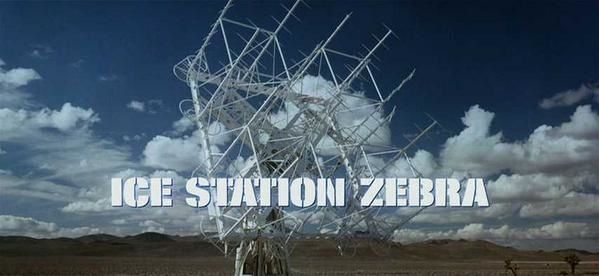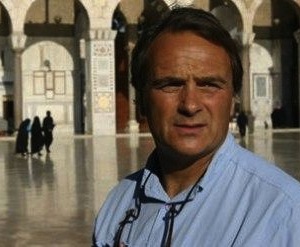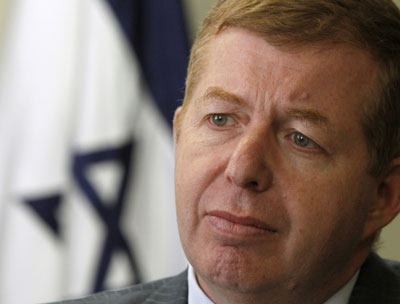| DATE | 2007-06-18 11:39:001. (SBU) Prime Minister Jens STOLTENBERG,s June 7-10 visit to Russia produced progress on Norwegian priorities in the Barents region. Despite some controversial statements on missile defense and some public criticism of Russia,s human rights record, STOLTENBERG,s visit was primarily characterized by some successes for Norway,s High North priorities, including resolution of a small part of Norway,s disputed sea-border with Russia and new Russian commitments on safety and economic development of the Barents Sea region. This result will likely encourage the government to continue Norway,s enthusiastically positive approach to Russia, downplaying tensions over security matters within NATO and other negative aspects.4. (C) Perhaps the most controversy of the visit was generated by a quote on missile defense STOLTENBERG made while in Murmansk. STOLTENBERG called on the U.S. and Russia to discuss missile defense, and said it was important for both sides to reduce harsh rhetoric and to avoid a new arms race. He continued to say that Norway has all along been skeptical of missile defense plans and would not allow missile defenses in Norway. Russian suspicions of the Vardoe radar site in northern Norway and false complaints about its supposed use in U.S. missile defense plans were a staple of past meetings of Norwegian and Russian leaders and continue to be a sub theme of Russian complaints about U.S. missile defense plans at NATO. However, during this visit the radar was not directly raised by either side. And Gets Criticized
------------------
¶5. (U) Norwegian media reaction to STOLTENBERG,s statement was critical, with editorials in Norway,s largest paper castigating STOLTENBERG for expressing his criticism of U.S. missile defense plans while in Russia, while not even mentioning Putin,s strong threats against NATO. The paper stated that the PM,s criticism of the U.S. on such a sensitive issue, without any balancing criticism of Russia, creates an impression of Norwegian servility towards Russia and shows that Norway is intimidated. The paper called for the PM to speak out against Putin,s harsh rhetoric, and make clear that Russia does not have veto power over missile defense plans in NATO countries. The editorial also stated that U.S. plans are no threat to Russia and that if the PM needs to criticize missile defense because of internal governmental reasons he should do so in another place than Russia. The Prime Minister,s office and the MFA have claimed that the PM,s comments reported in international media were taken out of context and that he intended to promote dialogue and make clear that Norway would not be used for any missile defense systems. See ref a for more the GON approach to Missile Defense.
Likely Results: Confirmation of Norways Current Russia Policy --------------------------------------------- -------------
¶6. (C) In a summary to the press before he returned to Norway, STOLTENBERG highlighted his satisfaction with reaching an agreement over the border in Varangerfjord. He also called for more frequent contacts with Russian leadership and invited President Putin to Norway. The border agreement, Statoil,s meeting with Putin and the positive developments on nuclear safety in the Barents were all key successes for Norway,s High North priorities. These successful results will likely encourage the GON,s natural inclination to avoid criticism of Russia and to stress their interest in co-operative projects in the North. This does not mean that the GON is unaware or unconcerned about the developments in Russia. We hear frequent private expressions of concern from lower-level members of the Defense Department and the Ministry of Foreign Affairs over Russia,s new aggressiveness and Russia is a topic which will continue to generate media and public interest. However, the GON appears determined to continue its course of downplaying disagreements in order to focus on its goal of close cooperation with Russia in the Barents region and make progress in its high priority High North policy. Elite opinion, including in the MFA, also includes sympathy for the worn argument that Russian misdeeds are often reactions to mistakes by the west, and in particular the U.S. Whitney. | ID | 09OSLO399 | | SUBJECT | | | DATE | 2009-06-18 07:44:00 | RUSSIA: Public Positivism and a Focus on the Bilateral --------------------------------------------- ---------
¶3. (C) The GONs official RUSSIA policy has been characterized by a consistent stress on the positive and a reluctance to publicly criticize RUSSIA actions (the Georgia war was one exception but the GON shows little public solidarity when RUSSIA pressures the Baltics, Poland or other allies). Norway has chosen to prioritize the bilateral aspects of its relations to RUSSIA, working to achieve greater cooperation in the Barents, defending its interests in a quiet manner and stressing the benefits of greater RUSSIAn integration into the European economic and political regimes. The GON works to maintain steady and positive contacts with RUSSIA as evidenced by the recent meetings of PM STOLTENBERG with President Medvedev and PM Putin, FM Stoeres meetings with FM Lavrov and other meetings between Ministers of Energy and Industry. (Reftel A and D)
¶4. (C) As a member of the wider European community, Norway has been much more passive, at times criticizing RUSSIAn actions, but primarily arguing for dialogue and inclusion. Norways focus on the bilateral relationship has resulted in cooperative and well-functioning relationships in environmental cleanup, nuclear safety, fisheries management and people-to-people exchanges. It also has led to a greater potential for cooperation in the development of energy resources in the Barents (StatoilHydros share of the Shtockman Development Company is the prime example).
¶5. (C) These achievements impact the wider relationship as the GON does not want to throw away the hard earned progress in bilateral relations (or damage the potential future cooperation on energy development or agreement on a maritime border) for events elsewhere. GON priorities were illustrated by a recent meeting between the Deputy Foreign Minister and a high-ranking USG official. When speaking about RUSSIA the Deputy Minister choose to focus on a recently concluded fishing agreement with RUSSIA, ignoring any other wider concerns.Comment -------
¶13. (C) Norway has succeeded in creating a low tension relationship with RUSSIA with real and functioning cooperative agreements in the Barents. This is positive but it is unclear that this is a result of GON policy or simply of RUSSIAn disinterest. Some are wondering if this is worth the price of GON reluctance to show solidarity when RUSSIA pushes allies or other states. Despite GON claims that other nations should follow their lead, it appears to us that Norways relationship is unique and a model RUSSIA might favor, but not other allies.
¶14. (C) Norways underlying concerns over RUSSIA will however continue to be an important piece of the continued close U.S.-Norway bilateral relationship. Close intelligence and military connections have continued despite the end of the cold war, and Norway had maintained its RUSSIAn expertise when others scaled back. Norways desire for increased attention to the High North is a healthy impulse and one which should compliment increasing U.S. interest in the Arctic. Norway has expressed a desire to re-start the dormant U.S.-Norway High North talks and discussing ways to combine our RUSSIAn expertise may be a topic of mutual interest for this initiative. Norway strongly supports U.S. determination to increase engagement with RUSSIA and "reset" the relationship. We should ask Norway to also support the firm U.S. and NATO positions on RUSSIA when necessary, rather than relying on others to do so 3 - Cette politique indépendante , le gouvernement Norvégien l' a aussi developpé au Proche-Orient en s'opposant à la politique belliciste de l'Entité Sioniste aka " Israël " . De la même manière que les brutales attaques contre le Liban et Gazza ont contribué à la détestation du Sionisme en Norvège , les massacres de Sabra et Chatila ont provoqué la detestation de ce Sionisme dans la Suède d' Olof Palme . En 2006, une crise diplomatique a éclaté entre les deux pays suite aux propos tenus par l'ambassadrice d'Israël.
En juin 2010, la Norvège a exigé une enquête internationale sur l'abordage par Israël de la flotille turque.
En aout 2010, la Norvège se désengage de deux investissements israéliens jugeant ces sociétés moralement condamnables.
En octobre 2010, la Norvège a interdit des exercices de submersibles israéliens, construits en Allemagne, dans ses eaux territoriales . Jonas Gahr Stoere, le ministre des Affaires étrangères norvégien, a déclaré, pour l'occasion, que la Norvège n'exportait pas de «matériel ou de services dans le domaine de la défense vers des pays où la guerre menace». En 2007 la Norvége a reconnu le Hamas
Le Gouvernement Norvégien vient de se pronnoncer en faveur de l'admission de la Palestine à l' ONU . | ID | 09OSLO739 | | SUBJECT | SCENESETTER FOR YOUR VISIT TO OSLO | | DATE | 2009-11-30 15:25:00 | Mid-East Peace Process
----------------------
¶9. (S) During the Oslo Peace Process of the 1990s, NORWAY
hosted Israeli-Palestinian peace talks, and the Nobel
Committee awarded the Nobel Peace Prize in 1994 to Yasser
Arafat, Shimon Peres, and Yitzhak Rabin. Tragically, Rabin
was assassinated a year later by a figure opposed to his
peace overtures. Subsequently, NORWAY has played a
diminishing, often independent, and sometimes unhelpful role
in the Middle East. NORWAY strongly believes it should
engage everyone, including HAMAS, which it has not designated
as a terrorist organization, unlike the United States and the
European Union. In a break with the international Quartet,
NORWAY recognized the HAMAS-Fatah Unity Government in 2007.
NORWAY more helpfully serves as a highly effective Co-Chair
of the Ad-Hoc Liaison Committee (AHLC), the main
international donor group for coordinating economic
assistance to the Palestinian Authority, and works to keep
AHLC activities in concert with the political track of
negotiations led by the U.S. NORWAY's relations with Israel
have been strained in recent years due to its contact with
HAMAS, Norwegian disapproval of Israeli actions during the
fighting in Gaza last winter, and periodic, privately-led
boycott campaigns against Israeli businesses and
universities. The Norwegian Government fully supports your
intensive efforts to restart direct Israeli-Palestinian
negotiations. Norwegian and Israeli officials told us this
fall that NORWAY has now initiated steps to improve the
bilateral relationship with Israel, including through
scientific or other exchanges and other activities. In early
November, the government publicly condemned a private effort
at a university in Trondheim to boycott Israeli academics,
defining the effort as contrary to academic freedom. The
university's board ultimately unanimously rejected the
boycott proposal a few days later on November 12.
4- Il est reproché à Jens Stoltenberg d'avoir fait une alliance avec un parti " Anti-OTAN " , la Gauche Socialiste ( SV ) . | ID | 07OSLO1161 | | SUBJECT | NORWAY'S DEFENSE POLICY AT A CROSSROADS: CLARITY | | DATE | 2007-12-18 13:17:00 | What? Soldiers Actually Shoot?
--------------------------------
¶2. (SBU) Background to this debate includes a government
which rhetorically affirms NATO as NORWAY,s primary security
provider but which is at heart skeptical of the use of
military power in all but the most benign ways, tempted by
the idea of closer Nordic defense cooperation and includes an
ANTI-NATO party, the Socialist Left (SV) as a member of the
governing coalition. The vigorous internal governmental
debate over NORWAY,s contributions to ISAF, as well as
repeated public negative comments concerning NATO and U.S.
missile defense plans are illustrative of the general impulse
of this government (see reftels for details). Conclusion: Looking for Security and Ideological Comfort
---------------------------------------
¶15. (C) Comment: FM Stoere realizes the need for continued
close security ties to NATO and the U.S. but at the same time
is uncomfortable with the direction of U.S. and NATO security
policy. His evolving public comments indicate the GON is not
looking to replace NATO but seeks additional partners in
security which are a better ideological match with the GON
and can balance the U.S. heavy NATO alliance. One example is
NORWAY's increased defense ties with the EU and its
participation in the EU Nordic Battle Group, despite being a
non-EU member. Cooperation with Sweden and Finland offers
both the possibility of savings on equipment purchases and
the chance to work with likeminded nations who prioritize UN
involvement, favor peacekeeping over peacemaking and who are
concerned about Russia. Stoere's coalition partners from SV,
of course, are unabashedly ANTI-NATO and anti-defense.
Implications for U.S. Policy
------------------------
¶16. (C) The decisions made by the GON on the Defense
Studies, recommendations on funding, the purchase of new
aircraft and on its relations to its neighbors will have a
significant impact on NORWAY,s ability and desire to meet
NATO commitments and spark a reassessment of NORWAY's defense
policies. We expect NORWAY's move toward Nordic cooperation
and preference for UN mandated peacekeeping missions to
remain, even if the current government does not win the 2009
election. This tend combined with a general antipathy to
missile defense, efforts to ban cluster munitions, focus on
disarmament instead of non-proliferation and reluctance to
use its vast energy wealth to fund defense spending open
questions regarding NORWAY's commitment to be a serious and
dependable ally. Thus, despite continued close and
productive military to military relations, the GON,s actions
and long-term trends bear watching in NATO and bilaterally.
In this atmosphere it is more vital than ever that we speak
and act clearly and at senior levels when NORWAY is an
outlier on key issues. Eager to act more independently but
loathe to be seen as weakening trans-Atlantic ties, the GON
will listen and respond when confronted. Assuming generally
common interests and policies, however, would be a mistake.
This is not the NORWAY many remember, and failing to make 4- rechercherchait- on un successeur à Jens Stoltenberg au sein du Parti Travailliste ? Un Carl Bildt Norvégien ? | ID | 08OSLO406 | | SUBJECT | NORWAY'S DEPUTY MINISTER OF DEFENSE, ESPEN BARTH EIDE, POWER IN NORWAY'S MOD AND RISING STAR IN THE LABOR PARTY | | DATE | 2008-07-21 09:09:00 | 1. (C) Summary. Ministry of Defense State Secretary, Espen Barth Eide is one of the more powerful politicians in the current GON despite his deputy minister portfolio. His ties to the Ministry of Foreign Affairs, think tanks, NGOs and the UN as well as his influential current position likely will result in either a ministerial position in a future Labor government or a high ranking UN or EU position. Barth Eide is particularly interested in UN peacekeeping operations and may be interested in a future UN position. End Summary.
--Power Behind the Throne--
¶2. (C) Ideologically on the more conservative side of the Labor Party, Barth Eide is one of the most experienced and influential government figures. After the 2005 national election many observers thought that PM Jens STOLTENBERG meant to appoint Barth Eide as a State Secretary in the MFA, but after being forced to appoint a weak defense minister, STOLTENBERG moved Barth Eide to the MOD. Barth Eide is regarded as the force which steers the defense ministry and is an eloquent and knowledgeable speaker and writer on defense and security matters. He is often quoted in the press, more so than the Defense Minister, Anne-Grete Strom-Erichsen. Strom-Erichsen was appointed minister without any background in defense matters and has relied on Barth Eide to be her subject matter and policy expert while she deals with political issues. Barth Eide has wide leeway in determining what areas to focus on and is self-confident in determining priorities.
--Past Positions--
¶3. (C) His current position as deputy minister (or state secretary in the Norwegian term) is the second time he has held that rank. The first was in the MFA from 2000-2001 under then Foreign Minister Thorbjorn Jagland (now President of Parliament). Interspersed between government posts, Barth Eide led the Norwegian Institute of International Affairs (NUPI) 2002-2005, focusing on UN issues and peacekeeping, particularly the Balkans. He also has been a long time supporter of Norwegian membership in the EU, acting as the general secretary for the European Movement from 1991-1993, prior to the failed 1994 referendum on EU membership in Norway. Barth Eide has also been involved in several UN projects, serving as a senior consultant on the UN reform process and on the UN Panel on Threats, Challenges and Change from 2003-2004. Barth Eide has been co-editor of the London Based journal International Peacekeeping and was nominated a "Global Leader of Tomorrow" by the World Economic Forum in 2003.
--Interactions with the USG--
¶4. (C) In his relations with the Embassy, Barth Eide has been difficult to characterize. Barth Eide is a skilled and subtle interagency player who is largely pro-U.S. but should not be trusted to reliably uphold U.S. interests. On several important issues Barth Eide has been helpful, such as missile defense (where he helped prevent a Norwegian veto of NATO plans), the sale of land to the USG for construction of a new embassy building (intervening on touchy real estate issues affecting the U.S. purchase of land for the new embassy) and pushing for Norwegian deployments to Afghanistan. On other issues, such as the decision process on the purchase of new fighter aircraft and the Norwegian approach on cluster munitions, he has hedged his bets. Barth Eide has avoided the gratuitous negative comments about the Bush Administration that other GON figures have made. Barth Eide also takes pains to stress NATO as the cornerstone of GON security policy and the importance of the Norwegian-U.S. relationship. He has given the Embassy good advice on how to approach the GON on several occasions. However, some very senior U.S. officials have felt that he has been hard to pin down on several issues of concern and characterized Barth Eide as "weasily". Senior Norwegian officials, with strong pro-U.S. instincts, have also told the Embassy in private that Barth Eide is not to be relied upon to promote U.S. priorities. One key test of Barth Eide's inclinations will be the MOD recommendation on which fighter plane to purchase, the Joint Strike Fighter or the Saab Gripen. http://zebrastationpolaire.over-blog.com/article-oslo-attentat-quand-l-otan-visait-jens-stoltenberg-et-le-parti-travailliste-80014338.html |






















![[ TVgratis.TV - Tu Portal de TV Gratis - www.TVgratis.TV ] [ TVgratis.TV - Tu Portal de TV Gratis - www.TVgratis.TV ]](http://www.tvgratis.tv/banners/www-tvgratis-tv.gif)
